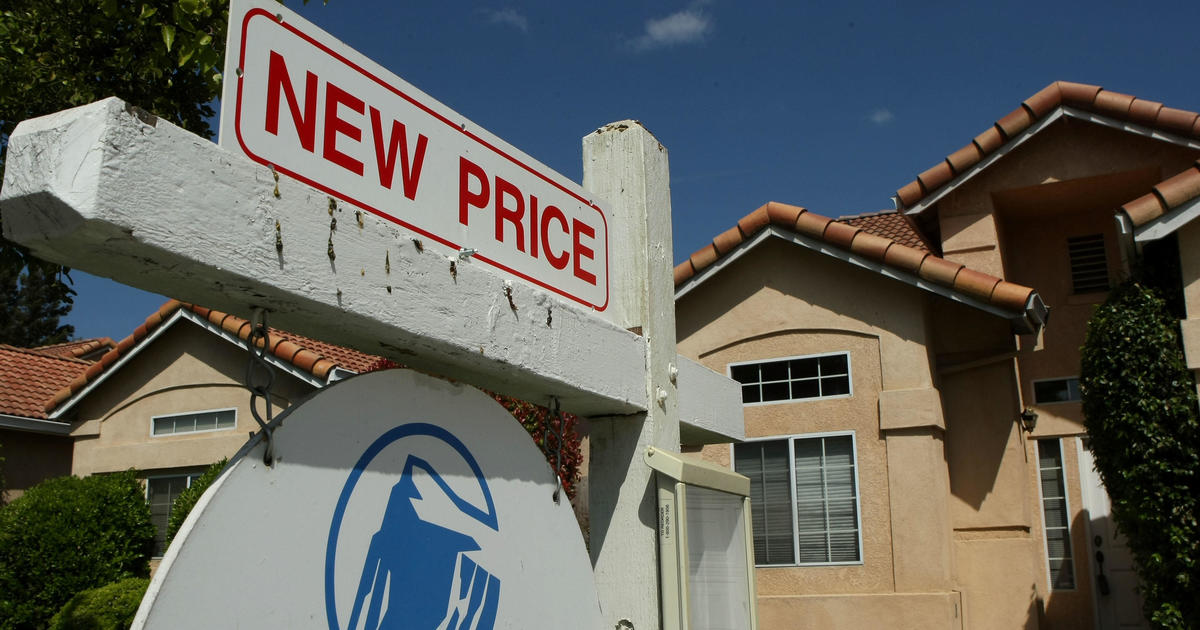Privatizing Fannie Mae and Freddie Mac to shake up $10 trillion home loan market
The Trump administration has unveiled its plan for privatizing Fannie Mae and Freddie Mac, the two mortgage finance giants that nearly collapsed in the financial crisis 11 years ago and were bailed out at a total cost to taxpayers of $187 billion.
The administration's blueprint calls for ending government control of Fannie and Freddie, reducing risk to taxpayers, while preserving homebuyers' access to 30-year, fixed-rate mortgages, a pillar of housing finance. The Treasury Department published the plan Thursday and submitted it to President Donald Trump, who called for it in March.
While not prominently in the public eye, the two companies perform a critical role in the housing market. Together they guarantee roughly half of the $10 trillion U.S. home loan market. While the two companies have become profitable since their 2008 rescue and repaid their bailouts, the Treasury said in its report that "the housing finance system is in serious need of reform."
"Although they remain critical to the functioning of that system, they are not yet subject to capital and other regulatory requirements tailored to the risks they pose to financial stability," the report said. "This lack of reform has left taxpayers exposed to future bailouts."
The administration initially looked to Congress for legislation to overhaul the housing finance system and return the companies, which are operating under so-called government conservatorships, to private shareholders. But Congress hasn't acted, and now officials say they will take administrative action for the core change, ending the Fannie and Freddie conservatorships.
The new plan would make the companies privately owned yet government "sponsored" companies again. Their profits would no longer go to the Treasury but would be used to build up their capital bases as a cushion against possible future losses.
What are Fannie Mae and Freddie Mac?
Before the Great Depression of the 1930s, financing for mortgages was mainly provided by life insurance companies, banks and thrifts, with little government support. Fannie was created in 1938 to buy loans issued by the Federal Housing Administration. Freddie was established in 1989.
They are called government-sponsored enterprises. Before they were taken over in 2008, they were private companies but still enjoyed an implicit guarantee that the government would step in and rescue them if they failed. That's what happened after the collapse of the housing market and the wave of mortgage defaults.
The companies don't make home loans. They buy them from banks and other lenders, and bundle them into securities, guarantee them against default and sell them to investors. Because the companies are under government control, investors are eager to snap up the "safe" securities.
And because Fannie and Freddie stand behind nearly half of U.S. home loans, they're important to homeowners and potential buyers though people may not see their footprint.
What's behind the push to privatize?
Administration officials say the government should have only a limited role in housing finance, and that the current system leaves taxpayers exposed to potential bailouts again. Some lawmakers, both Republicans and Democrats, agree with that view.
Yale economics professor Robert Shiller, the Nobel Memorial Prize-winner famous for calling the mid-2000s housing bubble, said he had not read the details of the government's reform plan, but noted on Friday that there has long been a debate around the government's involvement in housing. "There's a question whether the government should be in it long-term," he told CBS MoneyWatch. "This is not American, to have the government investing in homes."
On Thursday, senior Treasury officials told reporters that the government's far-reaching power in this area means the Federal Housing Finance Agency can determine who gets a home mortgage, the price and terms of the loan, how it is made and then serviced and what happens if a borrower defaults.
The administration's proposed overhaul of housing finance "will protect taxpayers and help Americans who want to buy a home," Treasury Secretary Steven Mnuchin said in a statement. "An effective and efficient federal housing finance system will also meaningfully contribute to the continued economic growth under this administration."
What is the administration proposing?
There are nitty-gritty details of housing finance in the plan, but the central change is ending the conservatorships. Officials haven't given a timeline for the administrative action.
Mark Calabria, the director of the FHFA, indicated recently that it wouldn't be any time soon, and likely after 2020. Some conditions will have to be met for the companies to be "ready to exit," he said. They include ensuring the companies have sufficient capital to operate, and to continue on their own in the event of a severe economic downturn.
Other changes outlined in the plan would have to be approved by Congress. They include replacing Fannie and Freddie's affordable housing goals with more "tailored support" for first-time homebuyers and low- and moderate-income borrowers.
What do critics say?
Some critics have expressed concern that the new capital requirements for the companies could cause them to increase their fees for guaranteeing mortgages, potentially raising borrowing costs for homebuyers.
Senator Sherrod Brown of Ohio, the senior Democrat on the Senate Banking Committee, called the new plan "another industry giveaway that would destabilize the economy ... and limit access to mortgages for working people across the country."
"President Trump's housing plan will make mortgages more expensive and harder to get," Brown said in a statement.
Administration officials acknowledge it's hard to predict what the impact on borrowing costs would be. But they maintain that by removing government restrictions, the plan would likely expand the supply of mortgages and possibly lower costs.



